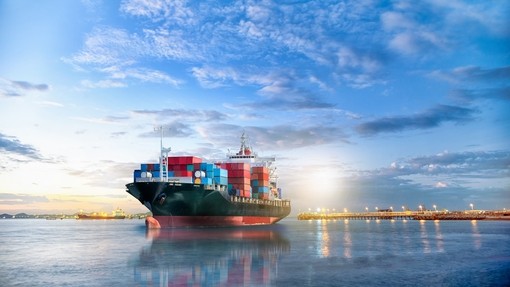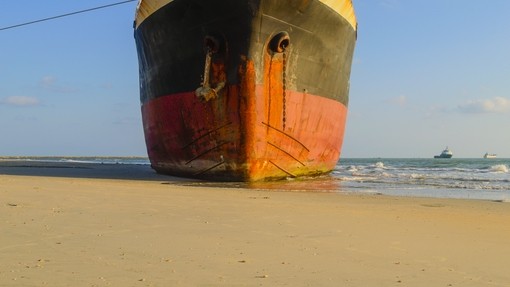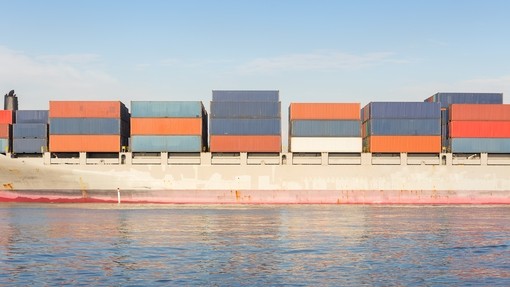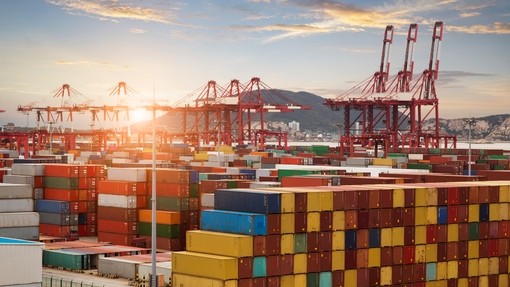Songa Chemicals AS -v- Navig8 Chemicals Pool Inc [2018] EWHC 397 (Comm)

Details
In this decision of Mr Justice Baker, the court was asked to interpret the provisions of the standard form P&I letter of indemnity (LOI) for the delivery of cargo without the production of original bills of lading. The principal issue was whether delivery had been effected to a receiver as identified in the LOI and therefore whether the indemnification provisions under the LOI were effective.
Factual background
The charterparty chain and sales contracts
The MT “SONGA WINDS” (the vessel) had been chartered by its owners, Songa Chemical AS (Songa) to Navig8 Chemicals Pool Inc (Navig8) on a Shelltime4 time charter. Navig8 had, in its capacity as disponent owner, chartered the vessel to Glencore Agriculture B.V. (Glencore) on a Vegoilvoy form to carry a cargo of crude sunflower seed oil from Ilychevsk, Ukraine for delivery in the New Mangalore/Kakinda range.
The original sale contract was between Glencore as seller and Ruchi Agritrading (Pte) Ltd (Agritrading) as buyer for 6,000 metric tonnes of crude edible grade sunflower oil in bulk. However, after shipment, the original sale contract was replaced by a sale contract between Glencore (as seller) and Aavanti Industries Pte Ltd (Aavanti) (as buyer) on terms materially back-to-back to those of two sale contracts dated 18 February 2016 between Aavanti and the parent company of Agritrading, Ruchi Soya Industries Ltd (Ruchi).
The LOIs
In the event, delivery was requested at both disports otherwise than against the original bills of lading by and on the terms of the International Group P&I LOI standard form. Consequently:
- by two LOIs addressed to Glencore dated 22 March, Aavanti requested delivery without production of original bills of lading to be made to Ruchi (or such party as Glencore believed to be, or represent, or to be acting on behalf of Ruchi) (the Aavanti LOIs)
- by two LOIs addresses to Navig8 dated 6 and 13 April, Glencore requested that delivery without production of original bills of lading be made to Aavanti (or to such party as Navig8 believed to be, or represent, or to be acting on behalf of Aavanti) (the Glencore LOIs)
- by two LOIs issued by Navig8 addressed to Songa, Navig8 requested that delivery without production of original bills of lading be made to Aavanti (or to such party as Songa believed to be, or represent, or to be acting on behalf of Aavanti) (the Navig8 LOIs)
Each of the LOIs contained the same substantive indemnification obligations at paragraphs 1 and 2 if delivery was made as requested, namely:
- to indemnify you, your servants and agents and to hold all of you harmless in respect of any liability, loss, damage or expense of whatsoever nature which you may sustain by reason of delivering the cargo in accordance with our request
- in the event of any proceedings being commenced against you or any of your servants or agents in connection with the delivery of the cargo as aforesaid, to provide you or them on demand with sufficient funds to defend the same
The financing and legal proceedings
Aavanti’s purchase from Glencore appeared to the court to have been financed by Societe Generale (SocGen) who claim to be lawful holders of the original bills of lading for the quantities discharged under the LOIs. Neither party was paid and, as a result, SocGen commenced proceedings against Songa in London arbitration for misdelivery.
As a result Songa commenced the present court proceedings against Navig8 under the Navig8 LOIs claiming declaratory relief that:
- in taking delivery from the vessel, Ruchi represented or was acting on behalf of Aavanti so that delivery was indeed to Aavanti as requested
- alternatively, that in effecting such delivery Songa believed Ruchi to represent or act on behalf of Aavanti
- alternatively, that delivery to Ruchi is deemed by paragraph 4 of the Navig8 LOIs to have been delivery to Aavanti
Navig8 has made the equivalent claim against Glencore under the Glencore LOIs.
Legal issues
Mr Justice Baker first emphasised the relevant wording of the P&I standard form LOIs, namely the request that owners deliver the cargo ‘to [R] at [P] without production of the original bill of lading’. ’ is the receiver delivery to whom without production of the bill of lading is requested, and P is the requested place of delivery. The blank standard form provides that R should be ‘X [name of the specific party] or…such party as you believe to be X or to be acting on behalf of X’.
The judge then went on to cite the two leading authorities on the issue: The Bremen Max and The Zagora. The first of these is authority for the proposition that delivery must have been made to R as defined in the LOI delivery request as a pre-condition to any possible liability under the substantive indemnification provisions of the LOI. The second prompted the introduction of the additional wording to the standard form LOI (i.e. ‘such party as you believe to be X or to be acting on behalf of X’).
Issue one - was Ruchi, in taking delivery from the ship, representing or acting on behalf of Aavanti?
Mr Justice Baker answered this in the affirmative. In doing so, emphasis was placed upon the factual matrix involved. In short, the judge highlighted the unconditional wording of the Aavanti LOI and the standard pattern of trading between Aavanti and Ruchi; the contemporaneous correspondence and the fact Ruchi was in possession of the Aavanti LOI and was able to present this to the agents to facilitate delivery; and the fact that Aavanti had no representative office or person in India, no right to import cargo into India, and had not appointed anyone to take delivery of the relevant cargo at the two disports (unless this was Ruchi).
The second and third issues did not fall for determination, but the judge went on to consider both in any event.
Issue two - if not, did the shipowner believe that in taking delivery from the ship, Ruchi represented or acted on behalf of Aavanti?
The judge noted as a preliminary point that it was the master’s belief that was relevant in circumstances such as the present. He went on to consider that, had the matter been relevant, there was insufficient evidence in the present case to determine the belief of Songa and/or Navig8 and that a trial would have been necessary.
Issue three - if not, was the relevant delivery from the ship deemed to be delivery to the party delivery to whom had been requested, by operation of clause 4 of the relevant LOIs?
The relevant wording of clause 4 states:
’If the place at which we have asked you to make delivery is a bulk liquid or gas terminal or facility, or another ship, lighter or barge, then delivery to such terminal, facility, lighter or barge shall be deemed to be delivery to the party to whom we have requested you to make such delivery…’
The court held that the relevant LOIs were not covered by this wording as they requested delivery at the two disports, New Mangalore and Kakinada, and were no more specific than that.
In the circumstances Justice Baker granted the declaratory relief sought on the basis that Ruchi were representing or acting on behalf of Aavanti.
Comment
This case highlights the risk that traders and financing banks take where LOIs are issued allowing delivery to take place before payment has been made. It will also give comfort to owners when delivering against LOIs to party ‘believed to be or representing [the deliveree]’, but it would be as well to record the basis of that belief.
This article originally appeared in the July 2018 edition of shipping case digest. Other articles include:
Dera Commercial Estate -v- Derya Inc (The “SUR”) [2018] EWHC 1673 (Comm)
Navigator Spirit SA –v- Five Oceans Salvage SA (The “FLAG METTE”) [2018] EWHC 1108 (Comm)






